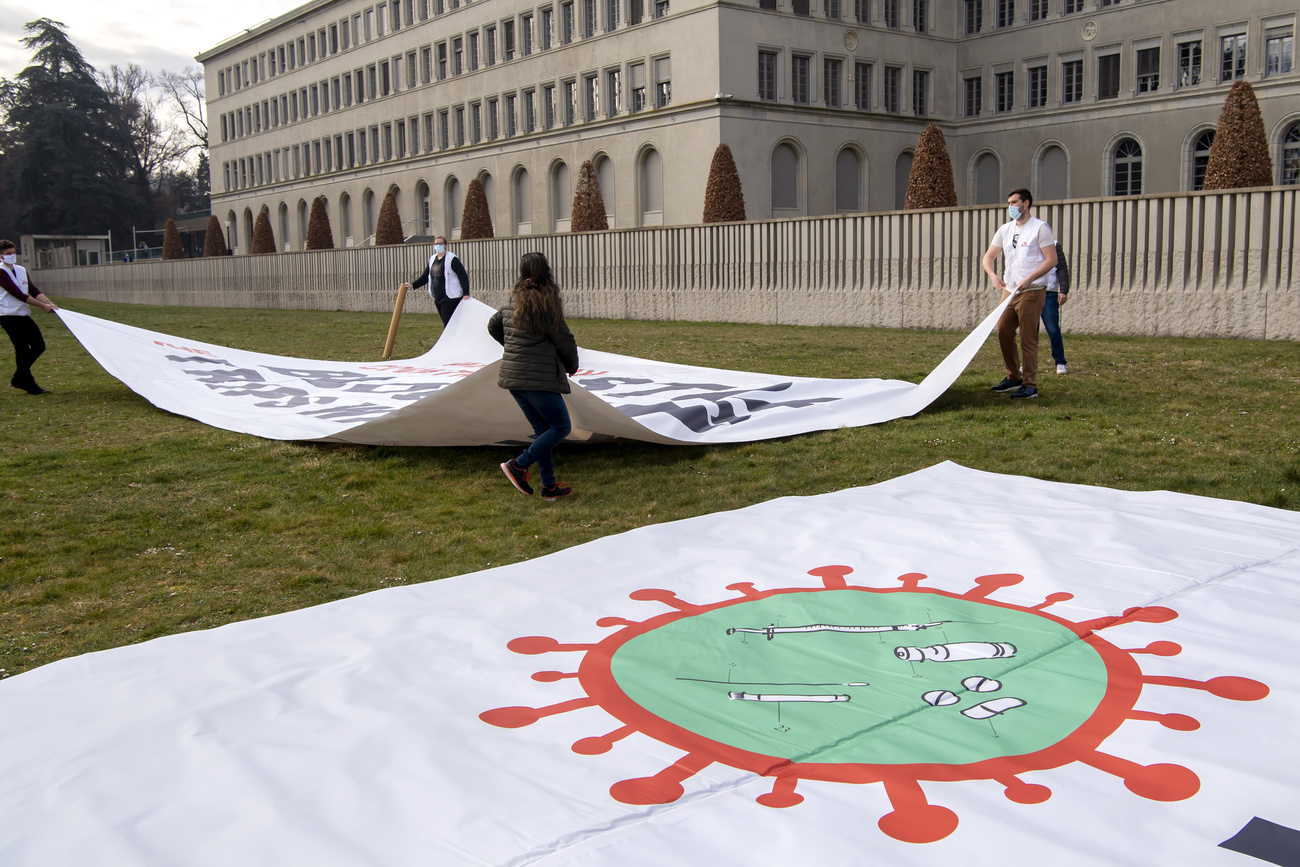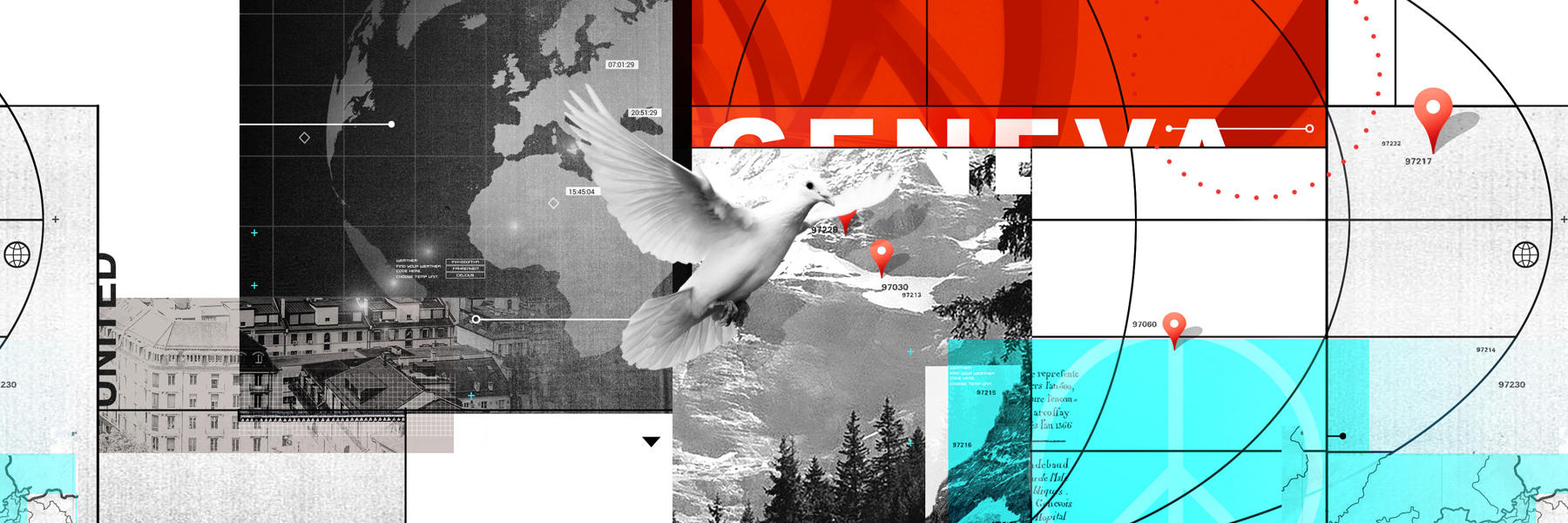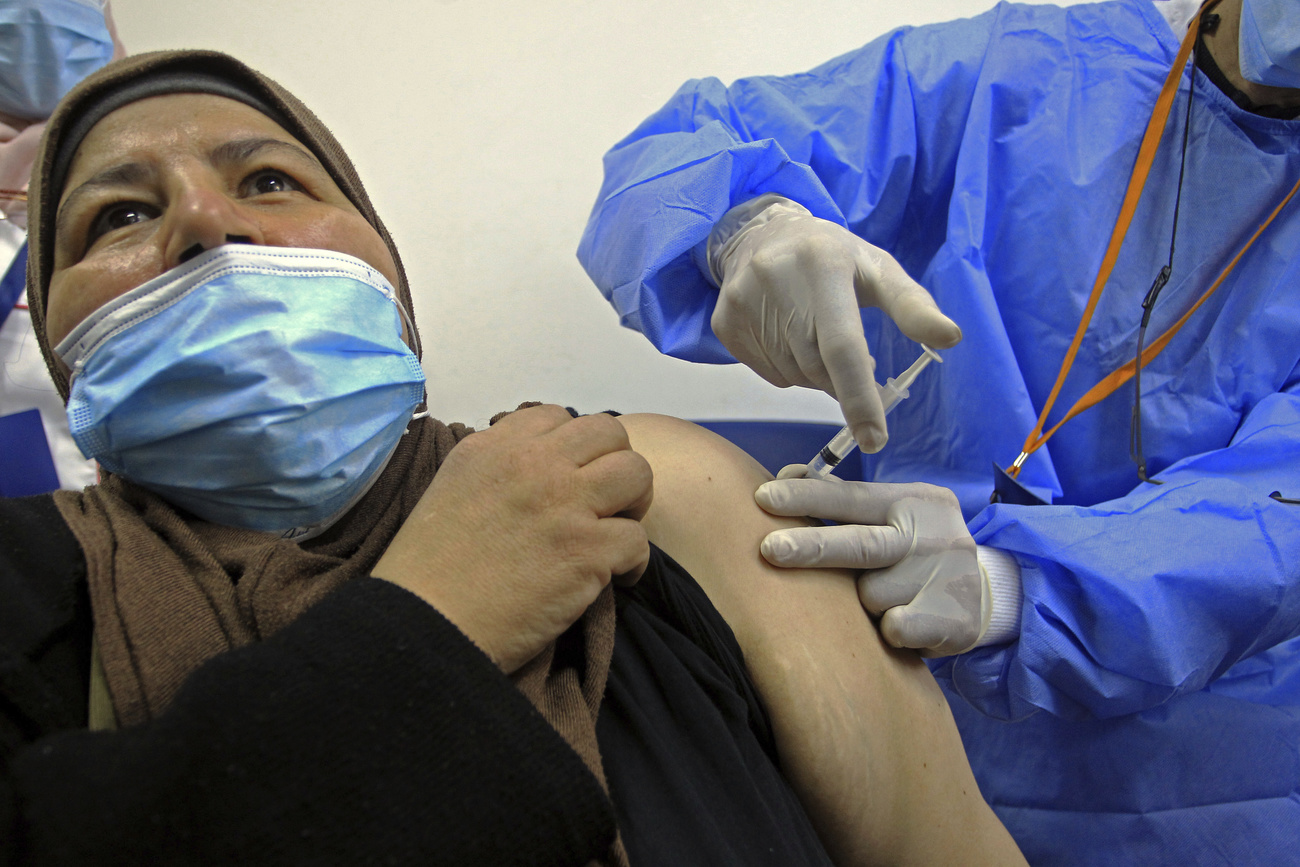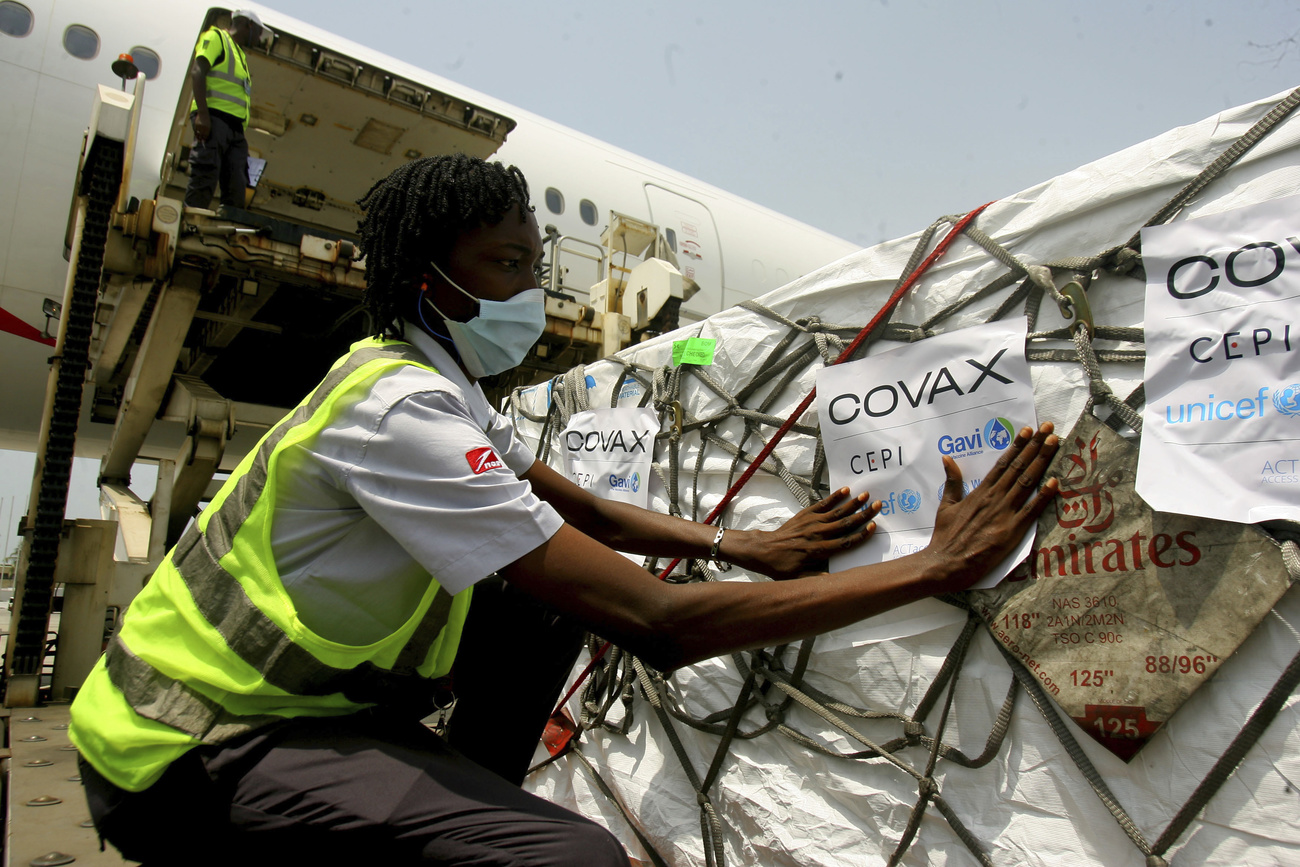Swiss not swayed by US vaccine waiver announcement

Switzerland has reacted cautiously to the US decision to back a suspension of patents on Covid-19 vaccines, saying a waiver is not the best way to achieve better global supply.
On Wednesday, US Trade Representative Katherine Tai said the US would support a temporary waiver of intellectual property (IP) protections on Covid-19 vaccines and would work with the Geneva-based World Trade Organisation (WTO) to “make that happen”.
Seven months after such an idea was first proposed at the WTO by India and South Africa, as an attempt to reduce the gap in access to vaccines between rich and poor nations, the pressure is thus mounting on reluctant countries – including Switzerland – to follow suit.
In a reaction on Thursday evening, however, the Swiss economics ministry said the US announcement was “significant”, but that waiving IP rights would not guarantee “fair, affordable, and fast” access to vaccines and other technology against Covid-19.
“Many questions remain open about the solutions which they [the US] concretely have in mind,” the economics ministry said in a statement to the Keystone-SDA news agency. Switzerland will “evaluate” the new proposition.
The Swiss position thus hasn’t appeared to have shifted much since a previous WTO meeting in March, when the government said it was “misleading” to believe that the temporary suspension of patents would translate swiftly into a worldwide supply of Covid-19 vaccines.
In a statement to SWI swissinfo.ch at the time, the government added: “patent protection ensures that, in addition to government funding, the necessary private investments are made in research and development. Switzerland is therefore convinced that suspending the established international legal framework would be the wrong approach.”

More
Vaccine patent waiver push takes centre stage in Geneva
Industry pushback
Industry groups on Thursday were also not overjoyed about the US decision. The International Federation of Pharmaceutical Manufacturers and Associations (IFPMA), based in Geneva, said it was “disappointing” and that a waiver is the “simple but wrong” answer to a complex problem.
The association disagrees with arguments that patents stand in the way of increasing production. Instead, it sees trade barriers, bottlenecks in supply chains and scarcity of raw materials as well as an unwillingness of countries to share doses as the main barriers.
More than 200 technology transfer agreements have been signed with manufacturers, which IFPMA attributes to confidence in the IP system.
René Buholzer, who heads the Swiss industry lobby group Interpharma, echoed this position in the Neue Zürcher Zeitung paper, saying that it isn’t “enough to have the recipe, you need different ingredients, a lot of know-how and infrastructure”.
Pharma companies have consistently argued that a robust IP system is needed for innovation, but it also gives companies a monopoly over them. They are worried about the precedent that such a move will set, he went on.
“Why should you invest your money in risky research projects in the future if the patent is then revoked if it is successful? That stifles innovation,” Buholzer said. It takes decades and millions in investment to develop innovative vaccines and treatments, the industry argues.

More
The changing face of International Geneva
Where Swiss companies stand
Since Swiss companies haven’t developed Covid-19 vaccines – and therefore don’t hold such patents – the waiver proposal doesn’t affect them directly. However, if a waiver was to include diagnostics or treatments, it could affect Swiss companies such as Roche – a key player in developing Covid tests.
In an emailed response, Roche told SWI swissinfo.ch that they understand that the pandemic requires unusual measures, which is why the company is “closely collaborating with industry partners to re-dedicate own manufacturing facilities or share them with partners, providing limited licenses”.
Roche has partnered with Regeneron to help develop the US-based company’s antibody cocktail that has shown to be effective in preventing Covid-19.
The company is committed to collaboration but “concerned that waiving patents for difficult-to-make (complex) pharmaceutical products in a situation of strained supply chains might rather disrupt than facilitate global supply of safe products to people around the world”, the Roche response said.

More
In the vaccine race, can COVAX help poorer countries catch up?
Symbolic gesture?
WTO spokesman Keith Rockwell told the Associated Press that a panel on intellectual property at the body was expected to take up the waiver proposal again at a “tentative” meeting later this month before a formal meeting on June 8-9. That means any final deal could be weeks away at best.
The WTO also requires consensus for a proposal to be adopted, which means that individual countries have veto power, and all 164 member countries must agree. However, observers also reckon that the American announcement has a symbolic value that can’t be ignored.
The US, along with several other wealthy countries with big pharma industries – including Switzerland – have been the main opponents to the proposal from India and South Africa to waive parts of the Trade-related Aspects of Intellectual Property Agreement (TRIPS).
The IP rules essentially give companies a monopoly over production of medicine, tests and technologies and in effect stops countries from allowing other manufacturers from producing and exporting vaccines to another country without legal risks.

More
Calls intensify for Big Pharma to break monopolies on Covid-19 vaccines
EU openness
In contrast to the Swiss position, various international bodies in Geneva, including the World Health Organisation and the GAVI vaccine alliance (which is co-leading the vaccine pooling mechanism Covax Switzerland supports), welcomed the proposal.
Also reacting on Thursday, France and Italy meanwhile expressed their backing for the idea, while European Commission President Ursula Von Der Leyen said the EU would be open to discussions.
Swiss NGO Public Eye called on Bern, which has up to now firmly followed the position of the pharma industry – many of whom are based in the country – to follow the “historic decision” by the US and stop blocking patent waivers.
The Swiss government just topped up its own order of vaccines with another seven million doses ordered from Moderna. In total, it has signed deals for 36 million doses from Pfizer/BioNTech, Moderna, AstraZeneca, Curevac and Novavax for its population of 8.6 million people.
With input from agencies, dos

In compliance with the JTI standards
More: SWI swissinfo.ch certified by the Journalism Trust Initiative









You can find an overview of ongoing debates with our journalists here . Please join us!
If you want to start a conversation about a topic raised in this article or want to report factual errors, email us at english@swissinfo.ch.